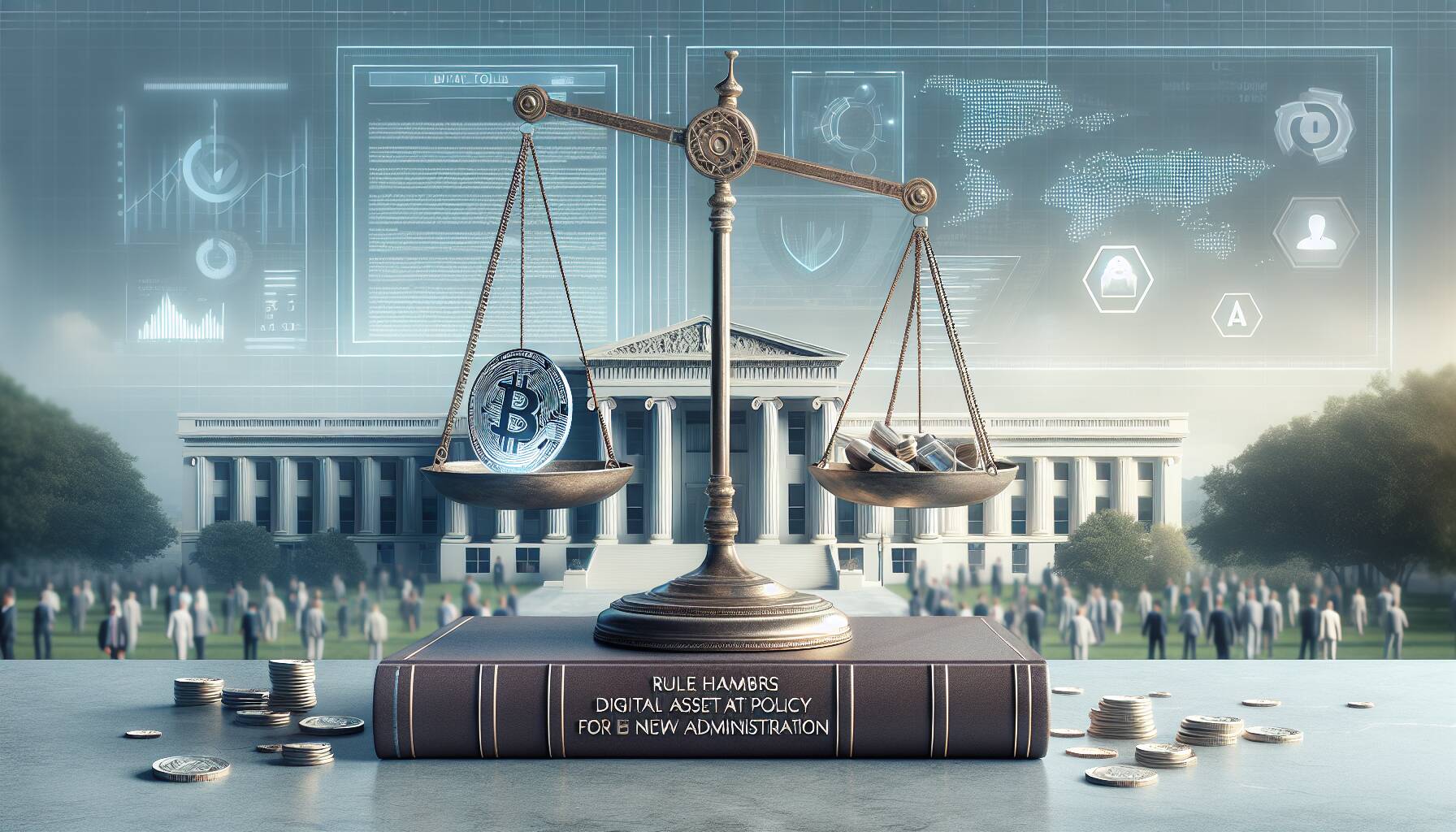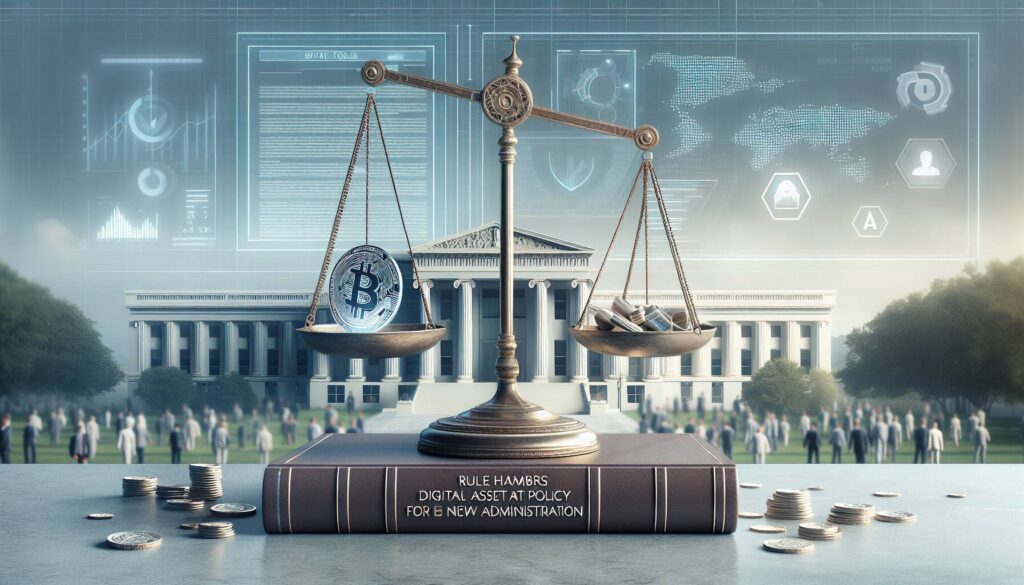The cryptocurrency landscape is once again at the forefront of political discussion, as the incoming Trump administration faces an unexpected hurdle related to federal ethics rules. As agencies ready themselves for new leadership, an overlooked directive known as Legal Advisory 22-04, introduced by the Office of Government Ethics during the Biden administration, poses significant challenges for those looking to develop effective digital asset policies.
Issued in 2022, this advisory essentially prohibits individuals holding cryptocurrencies, tokens, or stablecoins from serving in federal roles. While it was largely unnoticed until now, the implications could be substantial for an administration that aims to enhance American competitiveness in the realm of financial innovation.
Key regulatory bodies—including the Treasury, the Securities and Exchange Commission (SEC), the Commodity Futures Trading Commission (CFTC), and the Federal Reserve—require officials with a strong grasp of both traditional finance and the emerging world of digital assets. Strikingly, the existing ethics rule demands that potential appointees either divest entirely from the crypto sector or step aside from public service, leading to a conflict that could leave vital positions unoccupied.
In an ironic twist, the regulations allow Treasury officials to maintain investments in established financial institutions while simultaneously limiting similar flexibility for those working on digital asset regulation. This inconsistency highlights an artificial barrier preventing skilled industry professionals, who could provide invaluable insights, from contributing to federal service.
“The stakes are high. As countries like Singapore and Switzerland advance their regulatory frameworks for digital assets, the U.S. risks falling behind without the necessary expertise in crucial governmental positions.”
Many members of the Blockchain Association, representing over 100 companies at the cutting edge of financial innovation, include seasoned professionals proficient in government who could lend their expertise to federal agencies. Yet, the current restriction places their vast knowledge out of reach unless they choose to completely withdraw from the industry that shapes their skills.
Proposed solutions for overcoming this dilemma include updating the ethics guidance to permit minimal holdings of digital assets, akin to allowances made for conventional financial instruments. Alternatively, the incoming administration may opt to rescind the advisory altogether with an executive order. This swift action could signal a commitment to a more balanced and insightful approach to cryptocurrency policy.
As the new administration gears up for governance, addressing these ethical roadblocks should be a top priority. Without the right personnel equipped to navigate the complexities of digital finance, the U.S. risks losing its leadership in a technology that is fundamentally transforming the financial landscape worldwide.

Challenges in Digital Asset Policy for Incoming Administration
The potential impact of an obscure ethics rule on the incoming Trump administration’s digital asset policy is significant. Here are the key points to consider:
- Legal Advisory 22-04: Issued by the Office of Government Ethics in 2022, it restricts individuals holding cryptocurrencies from federal service.
- Impact on Competitiveness: The rule challenges the administration’s promise to restore American competitiveness in financial innovation.
- Need for Expertise: Key agencies such as the Treasury, SEC, CFTC, and Federal Reserve require officials with knowledge of both traditional finance and digital assets.
- Conflicting Ethics Rules: Current rules allow traditional finance investments but prohibit even minimal digital asset holdings, creating an unfair barrier for qualified candidates.
- Barrier to Recruitment: Experts from the digital asset sector are deterred from public service, which could hinder effective policy development.
- Proposed Solutions: Modify the guidance to allow minimal holdings of digital assets or rescind the advisory via executive order for a more balanced approach.
- Global Competition: Countries like Singapore and Switzerland are advancing their digital asset frameworks; the U.S. risks falling behind without adequate expertise in governance.
“Maintaining an overly broad ethics rule undermines America’s ability to lead in financial innovation.”
New Ethics Rule Poses Challenge for Incoming Trump Administration’s Crypto Policy Development
The impending transition to new executive leadership within federal agencies is creating a buzz, but not all of it is favorable, especially for Donald Trump’s administration gearing up to tackle the complexities of digital assets. An obscure yet significant ethics rule—Legal Advisory 22-04, established by the last administration—can be a double-edged sword in this scenario. While the intention may be to uphold ethical standards, the practical implications could significantly disadvantage the upcoming administration.
The competitive advantages of this news are noteworthy. It draws attention to the critical need for seasoned professionals who understand the intertwining of technology and finance, particularly in the realm of digital assets. By spotlighting the limitations imposed by the current ethical guidelines, the conversation could prompt necessary reform that might attract more talent back to public service. This also creates an opportunity for the incoming administration to assert its commitment to financial innovation and regulatory clarity. By inviting expertise from individuals who have been precluded due to overly restrictive policies, they could position themselves as forward-thinking leaders in the tech-driven financial landscape.
Conversely, the disadvantages are equally pronounced. The existing ethics rule could lead to crucial roles remaining vacant, thereby hampering the effectiveness of agencies like the Treasury, SEC, and CFTC in crafting relevant digital asset policies. Without personnel who possess real-world experience and understanding of cryptocurrencies, the administration risks relying solely on individuals with limited exposure, which could compromise the quality of regulatory frameworks needed in an arena moving as rapidly as blockchain technology. This also poses a unique dilemma for the incoming administration, as the contrast between access to traditional financial expertise and prohibition against digital asset experience highlights a glaring inconsistency in ethical regulations.
The implications of this rule extend beyond government staffing. For industry professionals, especially those skilled in navigating both traditional finance and digital innovation, the current framework could lead to a brain drain. Talents from the private sector may think twice before entering public service under conditions that require full divestiture from their area of expertise. On a broader scale, as countries like Singapore and Switzerland press ahead to regulate digital assets effectively, the U.S. risks falling behind, lacking a robust leadership team capable of marrying innovation with sound governance.
Ultimately, addressing these ethical dilemmas is crucial for the incoming administration’s credibility. By advocating for reasonable modifications to these guidelines, they could set a precedent that balances integrity with innovation, making a strong case for U.S. leadership in the evolving landscape of digital finance.

















